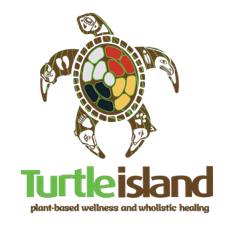Waste management is all about how to dispose of the things you don’t want. Where most think Waste Management – FNG is thinking Sustainable Materials Management!
First Nation Growers believe everyone has the right to live and work in a clean environment. Because of remoteness and in some cases low incomes, many Indigenous Communities feel they have limited to no options to safely and securely improving their waste management and collection methods. FNG Community Garden Farming Co-op Facilities bring improvements to the health of the communities that we work with by creating a safer and healthier place to live and work. Our commitment to each project is achieved using sustainable materials management practices. Ultimately, the goal of our FNG recycling program is to maximize the recyclability of our community garden farming materials.
Affluent societies often see it plainly as garbage or an environmental problem, but in many communities, waste can be an essential and flexible source of income and can provide raw material to many sectors of the economy. One of our FNG goals is to remain technologically advanced in the best interest of the environment by providing innovative project technologies in waste management resources. We will ensure our project will be available to each First Nation and or Inuit community that we work with across Canada, creating a cohesive relationship between community, environment and each 4seasons garden farming co-op facility.
Composting is a basic FNG sustainable waste management practice that converts any volume of accumulated organic waste into a usable product. Organic wastes are broken down by microorganisms in a heat-generating environment. This process will reduce the waste volume, along with destroying harmful organisms, and create a marketable product in the process. Composting is a process by which organic wastes are broken down by microorganisms, generally bacteria and fungi, into simpler forms. These microorganisms use the carbon in the bi-product as an energy source. The degradation of the nitrogen-containing materials results in a much more uniform product creating a soil amendment that FNG makes use of in our vertical grow rooms. Advantages of composting include reduction of waste volume, elimination of heat-killed pests, and the generation of beneficial and marketable materials. Adding compost to soil increases organic matter content, in turn, improves many soil characteristics and allows for the slow release of nutrients for crop use for subsequent years.
Recycling and waste management is an implemented resource management system, not a waste management system. Today, the approach that is considered “best practice” is to view recyclables as commodities managed under a resource management system consistent with management frameworks such as “sustainable materials management” and “zero waste.”
FNG takes a collaborative approach. Community-Private Partnerships for service delivery is one of the proven strategies for resource management planning. The primary objective of the program is to promote sustainable, self-supporting partnerships between each Community Garden Farm Co-op Facility and local Indigenous governments to support the formation and operation of new enterprise-community co-operation in solid waste management and recycling systems. The primary goal of the FNG Sustainable Materials Management program is to stimulate community co-operation and minimize adverse effects of waste in Indigenous Communities and improve the lives and livelihoods of Canada’s 1st peoples and the Indigenous Communities that we work with.





